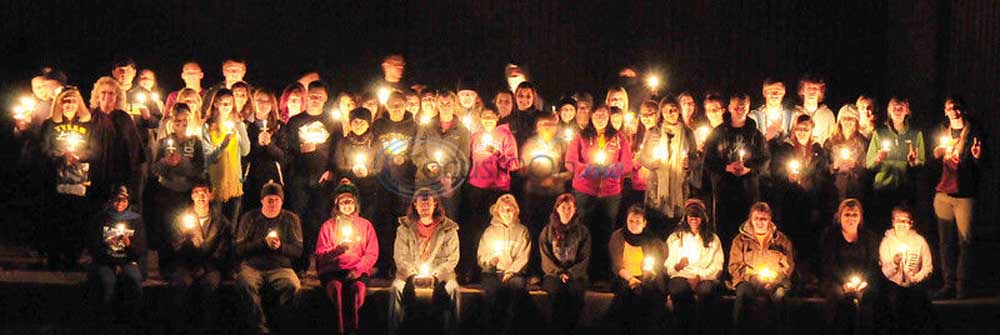Cold, Hard Reality: ‘One Night’ participants describe overnight, homeless experience
Published 11:59 pm Wednesday, November 20, 2013

- Participants in the 'One Night Without a Home' light candles Tuesday. Herb Nygren Jr/Staff
At the “One Night Without a Home” event, Tyler Junior College student Gabriela Tavera tossed and turned all night on the ground at Bergfeld Park.
“I don’t think I slept at all,” she said. “I couldn’t find a comfortable position.”
In fact, many of the participants didn’t sleep, with the night air in the 40s, unusual surroundings and hard ground.
The event was created to give people an idea what being homeless felt like. Participants ate at The Salvation Army, then slept in the park after an educational program.
When organizers woke them up at 5 a.m. Wednesday, one participant, who usually likes to sleep in, was glad for the early wake-up call.
Participants were given a single small candle for light and warmth as they gathered to talk about their experience before walking back to the Salvation Army for breakfast.
“We judge people so harshly, but I would be a criminal not to save my children from this cold,” said Sharmeen Yousaf, a TJC student.
Christina Fulsom, the representative from the East Texas Human Needs Network, was leading the morning’s discussion.
“Who was scared?” she asked. “Who slept under a light?”
A few raised their hands.
Legitimate fear is something often experienced by the homeless community, Mrs. Fulsom said. Mrs. Fulsom recalled one homeless friend who told her he slept under a light because if he died, he wanted his body to be easily found.
“I’ll never forget that,” she said.
This was the fourth event held in Tyler. During the last Point in Time Homeless Survey and Count on Jan. 24, organizers surveyed 238 homeless in Tyler, although about 430 are estimated to live in the community.
About 24 percent of the homeless in Tyler are children.
The average time to be homeless is usually three months, although last year’s survey showed an average of 150 days. The homeless are three to six times more likely to become ill and often can’t afford prescriptions. The life expectancy of someone who’s homeless is 42 to 52.
Andrea Wilson is the social services director for The Salvation Army. She told the group that when they were getting food at The Salvation Army as part of the event, many of the regular clients who eat dinner there were asking where they could get sleeping bags like the participants had.
“Consider donating a sleeping bag,” she said. “But even if you don’t have money or time to volunteer, you still have a voice to spread awareness about homelessness. That’s so important.”






